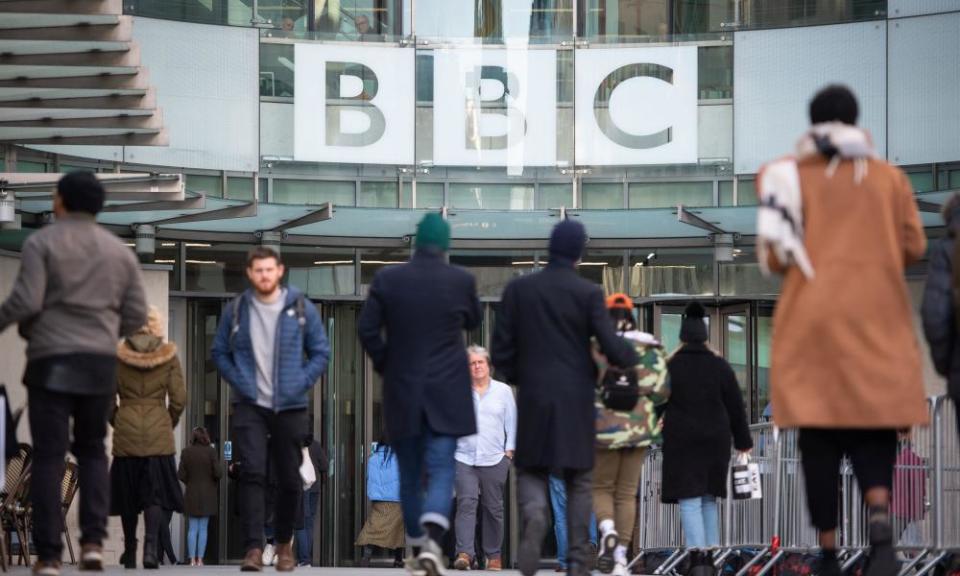After Tony Hall’s resignation, the BBC’s next boss will need nerves of steel

The resignation yesterday of the BBC’s director general, Tony Hall marks a perilous moment in the corporation’s existence. Whoever replaces Hall has the substantial task of tackling the hostile politics of Boris Johnson’s government as well as fighting obsolescence in a post-broadcast age.
The BBC’s social contract is for a civic, not commercial, enterprise. Its promise is for something owned by society, offering more than the flat space of internet “content”. This contract is in need of urgent renewal, if that is at all possible. However, the omens from a Conservative government are that it wishes to throw the contract into the white-hot furnace of lobbying cash generated by commercial media and tech platforms, seeking to limit the BBC’s reach and funding.
It is hard for even those of us who have been tracking the corporation for the past 30 years to remember a worse or more dangerous time for the broadcaster. It faces an assault on three fronts: externally, the forces of technology and globalised platforms are disrupting audience behaviour and diluting its appeal as a broadcaster; internally, staff morale has been sapped by a damaging series of pay and discrimination cases that should have been avoided; and politically it faces a hostile government that is sensing that perhaps for the first time, there are no votes to be lost in eroding the funding and the power of the BBC.
It is a rule of broadcasting that every decade has at least one BBC scandal, and usually more than one director general. In the 2000s there was the defenestration of Greg Dyke after he enraged the Labour government with unprovable accusations that it had “sexed up” a document claiming Iraq had weapons of mass destruction. In 2012 another crisis – over the failure to air an exposé on the deceased BBC celebrity Jimmy Savile accusing him of predatory child sex offences – led to the shortest tenure of a director general in the BBC’s 90-year history. It was also the sequence of events that brought Lord Hall back from the Royal Opera House to “steady the ship”.
Related: Four big issues the new BBC director general will find in their in-tray
Hall’s crisis has been slower to bloom and he has chosen his exit point: his first two years in charge saw him heal the wounds inflicted over Savile and install new blood to take on new digital challenges. But the wheels started to come off in 2015 with the disastrous secret deal over the licence fee Hall struck with the then Conservative chancellor George Osborne. Hall agreed to accept the long-term cost of granting over-75s free licences, even though it was a political policy. It was a poor decision that cost the BBC £750m. More tellingly, it was a blow to the corporation’s political independence. The following four years saw the BBC not just missing steps but falling down flight after flight of stairs. Brexit coverage ahead of the 2016 referendum was weak, and after the vote became the focus of toxic and divisive scrutiny. Its internal crisis over underpaying women broke out in a series of high-profile cases. Its journalism, always the backbone of the BBC, seemed to falter under sustained and often coordinated attack, some of which was undeserved and some of which hit the mark.
Internally Hall’s management issues went beyond editorial and pay questions, and included a strategic stagnation. Despite attempts to reorganise television and radio – with a long-needed merger in production and commercial departments, and constant talk of digitisation – very little changed as quickly as it needed to. This can be seen in the fog of the streaming platform wars: the BBC somehow managed to lose its way with the iPlayer, an asset that once dominated streaming and on-demand services in the UK, but now wilts in the face of Amazon, Netflix, YouTube et al.
The BBC’s chairman, David Clementi, gave a speech three months ago in which he noted that iPlayer’s share of video on demand viewing was 18% compared with Amazon and Netflix’s 55%. Government regulation has played a part in failing to allow the BBC adequate latitude to develop a global platform. Again, the corporation needed to make a better case or at least be a more wily negotiator.
Hall, though, should at least be credited with a timely exit. The post is an impossible mix of editor-in-chief and chief executive. The last director general to be appointed without journalistic credentials was Michael Checkland, who served for five years from 1987. An accountant by training, Checkland was an effective bulwark against Margaret Thatcher’s campaign to dismantle the BBC, which culminated with the Peacock report into its financing. Checkland had John Birt as his deputy – they formed a duo who were unpopular with staff at the time but whose combined rigour and strategic mettle saved the corporation from a potentially early demise.
The existential crisis facing the BBC today is far bigger, and Hall’s successor needs to be someone with a deep knowledge of the political and regulatory environment, backed by a steely presence in news.
• Emily Bell is director of the Tow Center for Digital Journalism at Columbia University’s Graduate School of Journalism

